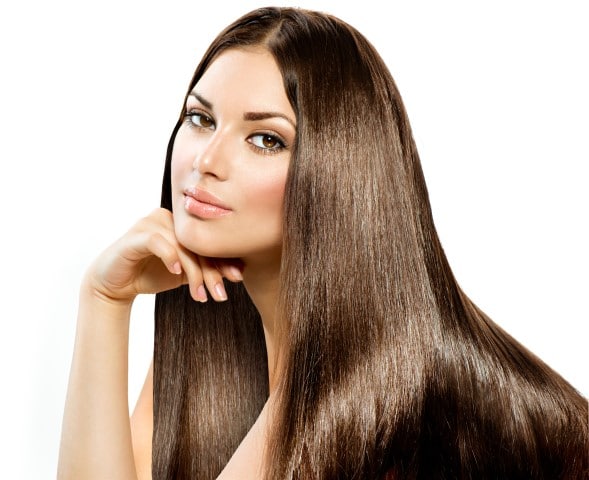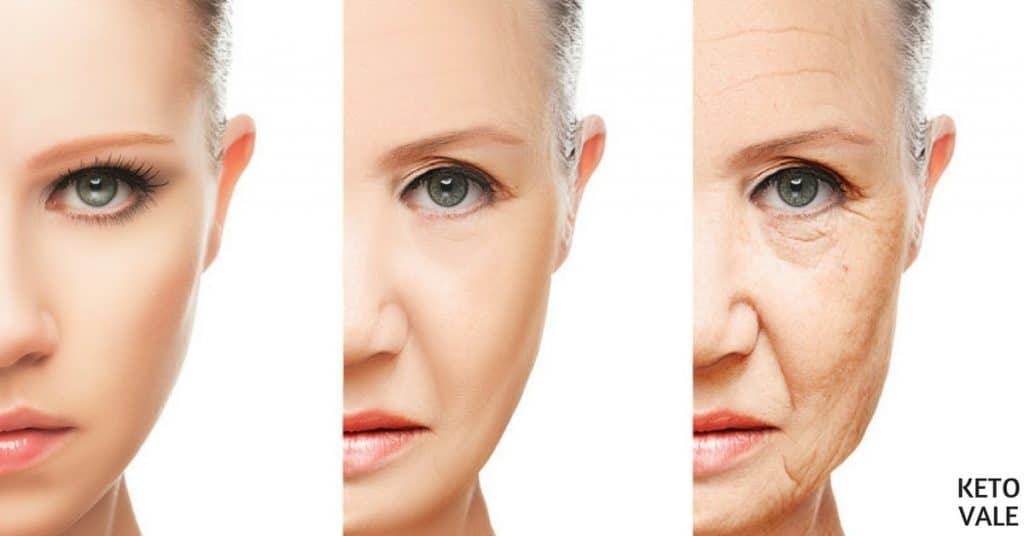Collagen is a protein which accounts for more than 25% of our body mass. They are at least 16 types of collagen in the human body but 90% of them are type I, II and III.
Collagen contains three amino acids: glycine, proline, and hydroxyproline. Collagen type I is mostly found in the skin, the bones and the tissue fluid. Type II collagen is found in the cartilage, whereas collagen type III is found in the skin, the muscles and the blood vessels (1).
Collagen peptides are made from collagen molecules breakdown: they contain the same amino acids but have different properties from collagen.
Collagen peptides are bioavailable, meaning that they are better absorbed into the blood because they are shorter amino acids chains than collagen.
Collagen hydrolysate is a nutritional supplement which increases the levels of collagen in the human body.It contains collagen peptides which are hydrolyzed, meaning that the amino acid chains have been broken down into smaller units, which allows the powder supplement to be dissolved in liquids.
After absorption, collagen peptides travel via the bloodstream and help repair tissue and bone damage (2).
Gelatin is a mix of collagen peptides which is created after the breakdown of cross-linkages between the polypeptide chains and polypeptide bonds.
A further enzymatic gelatin breakdown results into gelatin hydrolysates. Gelatin hydrolysates and gelatin-derived peptides have antioxidant properties an antihypertensive, anticancer, anti-photoaging, and cholesterol-lowering properties (3).
What is Collagen Good For?
#1. Acts As Anti-aging Therapy

Collagen is also a natural anti-aging therapy, as it prevents wrinkles and providing elasticity and glow in the skin (4).
A pilot study on 26 healthy women showed that hydrolyzed collagen type II dietary supplement improved blood circulation and reduced facial signs of aging (5).
A clinical study showed that hydrolyzed collagen supplement used daily for 2 months decreased skin dryness, wrinkles, and “laugh lines”. Moreover, it increased collagen density and the firmness of the skin (6).
Collagen hydrolysate supplement containing the collagen peptides Pro-Hyp and Hyp-Gly increases skin moisture and elasticity while decreases wrinkles and skin roughness (7).
A more recent study further demonstrated that collagen peptides supplementation increased skin moisture and reduce aging of the skin (8).
#2. Enhances Skin Health
Collagen improves skin health by reducing face lines and sun damage (9).
A randomized, placebo-controlled trial among 69 women showed that 2.5 g or 5.0 g of collagen hydrolysate increased skin elasticity (10).
Supplementation of collagen hydrolysate not only improves skin health but also protects from UVB radiation and enhances the epidermal barrier function (11).
#3. Reduces Cellulite
Collagen can help you get rid of cellulite and dimply thighs. Collagen peptides as an oral supplement can enhance skin health. They decrease cellulite and skin waviness in women’s thighs and they are effective among overweight and normal-weight women.
A study with 105 women who had cellulite experienced an improvement on skin health and a decrease in the degree of cellulite after consuming only 2.5 g of collagen peptides over 6 months (12).
#4. Great For Athletic Performance
Collagen hydrolysate as a dietary supplement is also highly beneficial to athletes.
A small clinical trial on 8 active adults showed that collagen hydrolyzed supplement (from chicken) protects the connective tissue, and reduces recovery time in exercise-related injuries (13).
According to a randomized, double-blind trial on 147 athletes, collagen hydrolysate supplement resulted in the reduction of joint pain and improvement of athletic performance. The researchers also suggested that the collagen hydrolysate supplement could possibly decrease the risk of joint damage in a high-risk group, such as athletes (14).
#5. Manages Osteoarthritis
Collagen peptides help manage osteoarthritis and improve joint health (15).
Pharmaceutical-grade collagen hydrolysate (PCH) increases the hydroxyproline levels, which is one of the main amino acids of collagen. PCH administration decreases joint pain in the knee or hip osteoarthritis (16).
A scientific literature review concluded that collagen hydrolysate supplement is absorbed in the gut, circulates in the blood and becomes concentrated in the cartilage, where it buildups the tissue and reduces joint pain. Thus, it can be used for the management of osteoarthritis and other joint diseases (17).
Another clinical trial on 80 osteoarthritis patients showed that collagen hydrolyzed supplement (from chicken) reduced joint pain, improved physical activities and effectively managed all symptoms of osteoarthritis (18).
#6. Improves Bone Health
Collagen provides strength to the bones and helps with wound healing (19).
PCH together with calcitonin prevent bone collagen breakdown, thus improving condition among people with osteoporosis (20).
#7. Maintains Nitrogen Balance
Older people tend to consume less protein than needed, which results in nitrogen imbalance and lean mass reduction.
A clinical study on 9 healthy, elderly women showed that a collagen hydrolysate protein supplement maintained the subject’s nitrogen balance while preserving their body weight. On the contrary, a whey protein supplement resulted in the reduction of body mass (21).
#8. Can Help with Sarcopenia
Sarcopenia is a condition mainly affecting elderly and it involves the deteriorating loss of skeletal muscle and frailty (22).
A randomized trial on 53 elderly, sarcopenic men showed that exercise combined with collagen peptides supplement increases muscle strength, body mass and enhances body composition (23).
#9. Reduces Joint Pain (Other Than Osteoarthritis)

A randomized, double-blind study with 200 patients of both genders showed that 1200 mg of collagen hydrolysate can reduce the joint pain in lower or upper limbs or at the lumbar spine (24).
#10. May Prevent Hair Loss
Hair thinning and loss is an unknown mechanism. However, it’s a part of aging and collagen deficiency. Studies have found that type XVII collagen could help prevent early hair loss, thinning or graying (25, 26).
Minor Collagen Side Effects
Some minor side-effects of pharmaceutical-grade collagen hydrolysate (PCH) include upset stomach, fullness and bad taste (27).
You should follow the instructions in the package for a recommended dose and how to use. A 10g/per day intake of collagen is considered safe and effective. You should talk to your doctor if you need to consume more than the recommended daily intake.
How to Get More Collagen?
You can get more collagen from your diet via collagen rich foods or supplements. Collagen peptides can derive from pork skin, chicken and bovine bone. For example, Vital Proteins’ Collagen Peptides are sourced from grass-fed and pasture-raised bovine.
You can use collagen powder to make smoothies or protein bars. Try this keto protein bar recipe to learn how.
Traditionally, most commercial collagen and collagen-derived products are produced from the processing by-products of cows and pigs.
However, bovine spongiform encephalopathy and foot-and-mouth disease raised health concerns regarding the animal source of collagen, thus lately more and more collagen supplements are derived from fish by-products, such as scales, skins, bones, and swim bladders.
Related: 15 Health Benefits of Bone Broth
Collagen Rich Foods
The top collagen boosting foods you can eat to help with your body’s collagen production are bone broth, grass-fed meat (chicken, lamb, beef, turkey, etc…), fish (cod, salmon, tuna), berries (blueberries, blackberries, raspberries, strawberries), vegetables (spinach, kale, garlic), and cheese (Parmesan, goat cheese, mozzarella, cheddar).
Up Next: Best Collagen Protein Powder Reviews







